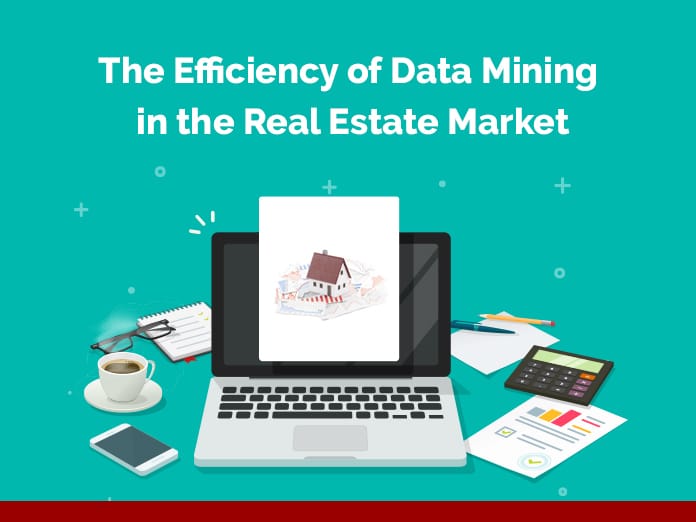Jump to Section
Capital Gains: The Power of Real Estate Data Mining
Real estate is generally a smart investment. As noted by ValueWalk, the global value of all developed properties hit $217 trillion in 2015, almost triple the world’s collective gross domestic product. For real estate companies, however, increased value means greater competition — it’s a race to attract new clients, find hot listings and make the first bid. While real estate remains an industry dependent on social savvy and agent legwork, there’s a new way to increase efficiency and drive profit: Data mining. Here’s what you need to know.
Too Much Data?
As IT in real estate has become commonplace, prospective buyers and sellers gained a significant advantage: Popular websites now list properties by location, price, amenities — virtually any combination of criteria users deem important. The result? According to ETRealty, sellers going into the market have a better idea of the current value of their home, while buyers get a sense of overall market trends. The issue? It’s easy for prospective clients to get overwhelmed by the sheer availability of unstructured, largely unsorted real estate data — providing the ideal opportunity for well-informed companies to gain consumer trust and maximize value. How? Data mining software for real estate.
Understanding the Market
For real estate agents and brokers, information is the ultimate resource. Buyers and sellers need to know you can answer any question — almost instantly — to feel secure in trusting you with large-value transactions. But the sheer amount of data now available from online real estate listing sites, municipal housing stats and economic forecasts can easily overwhelm even experienced teams. By leveraging data mining services from an experienced, reputable provider, however, companies get critical access to the data they need — on demand.
Here’s how it works: Data from multiple sources — such as listing sites, social networks, and news publications — is collected and automatically analyzed for specific trends. You get the ability to set the parameters: For example, your company might be focused on the luxury home market, or with helping sellers get the most value for their single-family home in a slumping market. With full access to relevant data, you get the ability to predict industry trends, evaluate market dynamics and effectively compare products and prices.
The Competitive Edge
Armed with information, your company gains the upper hand. Why? Because your focus shifts from playing “catch-up” with widening data streams to customer satisfaction. With an effectively managed data pipeline that generates aggregate insights based on current market trends, you’re equipped to deliver better service to multiple clients with a variety of needs. Information they need is at your fingertips, along with market experience and expertise acquired after years of sales, purchases, and negotiations. Simply put, data mining lets you get back to what you do best: serving clients and making the best deals possible.
Real estate runs on data. Tap this critical resource with the right data mining tools and reap the rewards of staying informed.
- LinkedIn Scraper | LinkedIn Data Extractor Software Tool - February 22, 2021
- Is Web Scraping Legal? - February 15, 2021
- What Is Data Scraping? - February 10, 2021

